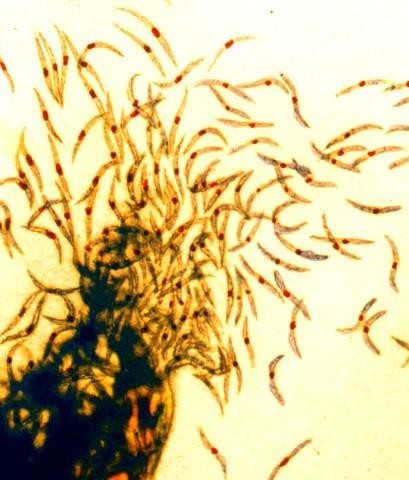Human antibody found to prevent malaria in mice

US scientists have discovered a human antibody that protects mice from infection with the deadliest malaria parasite, Plasmodium falciparum.
Published in the journal Nature Medicine, the research findings provide the basis for future testing in humans to determine if the antibody can provide short-term protection against malaria, and may additionally aid in vaccine design. This would mark a significant breakthrough in the fight against the mosquito-spread disease, as there is currently no highly effective, long-lasting vaccine to prevent against infection.
In a study led by the US National Institute of Allergy and Infectious Diseases (NIAID), researchers isolated the antibody of interest, called CIS43, from the blood of a volunteer who had received an experimental vaccine made from whole, weakened malaria parasites (PfSPZ Vaccine-Sanaria). The volunteer was later exposed to malaria-carrying mosquitoes under carefully controlled conditions and did not become infected. The researchers found that in two different models of mice, CIS43 was highly effective at preventing malaria infection.
Detailed examination of CIS43 revealed that it works by binding to a specific portion (epitope) of a key parasite surface protein. This epitope occurs only once along the length of the surface protein. In addition, the CIS43-binding epitope is conserved across 99.8% of all known strains of P. falciparum, making it an attractive target for next-generation experimental malaria vaccines designed to elicit production of this neutralising antibody.
According to the researchers, additional studies in people could see CIS43 developed as a prophylactic measure to prevent infection for several months after administration — making it suitable for tourists, healthcare workers, military personnel and others who travel to areas where malaria is common. Moreover, if the antibody prevented malaria infection for up to six months, it might be combined with antimalarial drugs and be deployed as part of mass drug administration efforts that potentially could eliminate the disease in malaria-endemic regions.
Researchers at the NIAID Vaccine Research Center are planning to assess the safety and protective efficacy of the CIS43 antibody next year in controlled human malaria infection challenge trials.
Retinal health linked to dementia risk, study shows
Researchers have discovered that the blood vessels at the back of the eye — called retinal...
Pancreatic cancer hijacks metabolism switch to help it spread
Pancreatic cancer hijacks a molecule known for regulating physiological processes, such as food...
Novel antibiotic activates 'suicide' mechanism in superbug
Researchers have discovered a new class of antibiotic that selectively targets Neisseria...




